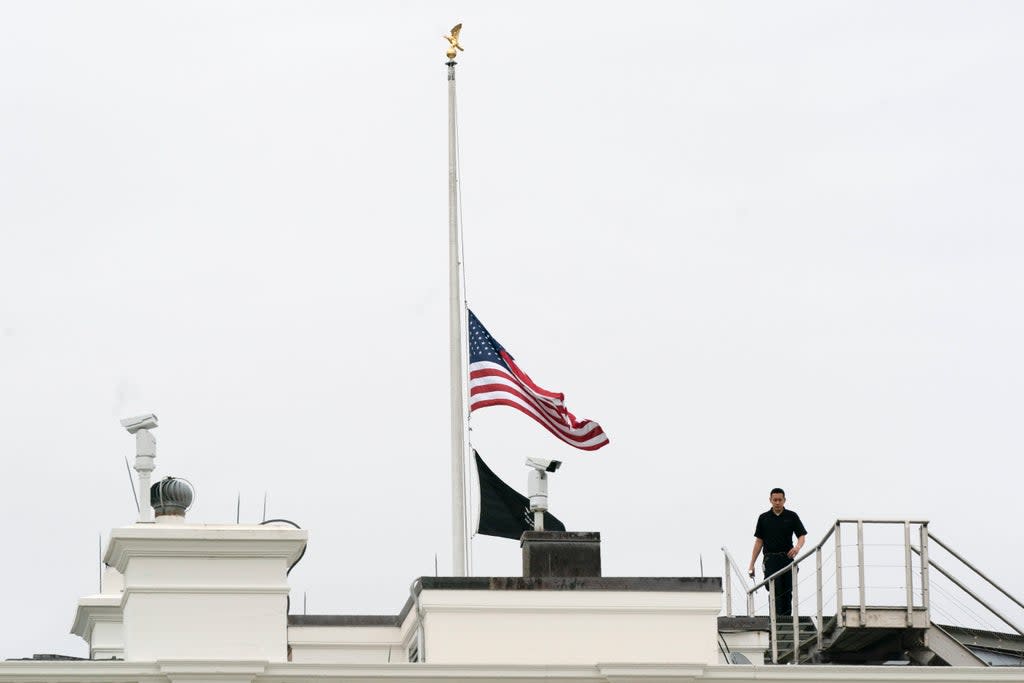LOCALIZE IT: Ideas for local coverage of deadly gun violence

EDITORS/NEWS DIRECTORS:
Spatters of blood. Yellow police tape. Wailing sirens. And the weeping of the innocent and inconsolable as yet another mass shooting plays out in a school, at a church or in a grocery store somewhere in America.
Tuesday's shooting that killed 18 young children and three adults at an elementary school in Texas came less than two weeks after a gunman opened fire at a supermarket in Buffalo, New York, killing 10 Black shoppers and workers in what officials have described as a hate crime.
It was the deadliest shooting at a U.S. grade school since the shocking attack at Sandy Hook Elementary in Newtown, Connecticut, 10 years ago this December.
Since Sandy Hook, where 20 first graders and six educators were gunned down in 2012, Congress has not passed a single piece of gun control legislation, underscoring the bitter divide around guns in America.
Here are some ways to localize coverage of how people in your communities are reacting to the latest deadly gun violence in the U.S. — far and away one of the most emotionally supercharged issues of our time. Local stories could run alongside the AP story US—Texas School Shooting and other spot coverage.
THE BACKGROUND
There have been dozens of shootings and other attacks in U.S. schools and colleges over the years, but until the massacre at Colorado’s Columbine High School in 1999, the number of dead tended to be in the single digits. Since then, the number of shootings that included schools and killed 10 or more people has mounted. The most recent two were both in Texas.
For many Americans, Sandy Hook was a mass shooting so horrific and unconscionable, they expected a shift away from Second Amendment arguments that favor of the right to carry and conceal weapons. That hasn't happened, leading some to question whether any measure of gun control can happen in this country.
Consider seeking out ordinary Americans in your area and asking them what they're feeling and how they're coping with the bloodshed in Texas, Buffalo and elsewhere. Questions to ask:
— Have you had any personal experience with gun violence, and if so, what was it and how did it affect you? What do you make of the latest rash of mass shootings?
— How do you think elected officials and others should respond? Are you frustrated that the federal government has done little to quell the bloodshed?
— How do you feel about restrictions on certain types of high-capacity rifles? (You may also choose to ask a few more delicate questions related to this, such as: Do you own a firearm? If so, what type and caliber and what do you use it for?)
— Surveys suggest roughly half of Americans favor stricter gun laws. How do you feel about restrictions? Do you think making it harder for people to obtain a gun legally would result in fewer mass shootings?
HELPFUL RESOURCES
There are numerous organizations dedicated to ending gun violence and advocating for some measure of gun control. They include:
— The Center for Gun Violence Solutions at Johns Hopkins University: https://publichealth.jhu.edu/departments/health-policy-and-management/research-and-practice/center-for-gun-violence-solutions
— The Brady Center to Prevent Gun Violence, named for former White House press secretary James Brady, who suffered a debilitating gunshot wound to the head during the 1981 attempted assassination of President Ronald Reagan: https://www.bradyunited.org/. Consider reaching out to the national organization or a local chapter to interview volunteers who are campaigning to change U.S. gun laws and the gun culture.
— The Giffords Law Center to Prevent Gun Violence, led by former U.S. Rep. Gabrielle Giffords, who was shot in the head in 2011 by a gunman who killed six people and wounded 12 others at a constituent event in her home state of Arizona: https://giffords.org/lawcenter/gun-laws/
Questions to ask gun control advocates:
— What do you think it will take to break the current cycle of gun violence and mass shootings in America?
— Given the history of mass shootings on an unprecedented scale in this country, why do you think it has been so difficult to achieve even a modicum of meaningful gun control? If you had to choose a single restriction around weaponry or ammunition, what would that be, and why?
— How do you respond to gun rights advocates who insist that restricting access to firearms will compromise the security of American families and institutions? What, if any, scenarios are you comfortable with that would involve private citizens' access to weapons?
— Has your thinking on this matter evolved over time? If so, how?
Many Americans insist on their right to bear arms as preserved in the Second Amendment to the U.S. Constitution. The leading group representing gun rights advocates is the National Rifle Association: https://home.nra.org/. To find a local NRA chapter, go to https://home.nra.org/?FindNRANearYou=true
Questions to ask gun rights supporters:
— Have you had any personal experience with gun violence? If so, what was it and how did it affect you? What do you make of the latest rash of mass shootings?
— When you see bloodshed like that in Texas or Buffalo, how do you justify unfettered access to weaponry and ammunition? What would you say to those who are grieving in Texas, Buffalo, Sandy Hook and other communities bloodied by mass shootings?
— Are there any restrictions you'd be willing to accept if there were a chance that they would diminish the gun violence that's been plaguing communities across the U.S.?
— Has your thinking on this matter evolved over time? If so, how?
___
Localize It is an occasional feature produced by The Associated Press for its customers’ use. Questions can be directed to William J. Kole at bkole@ap.org or Ted Anthony at tanthony@ap.org.
